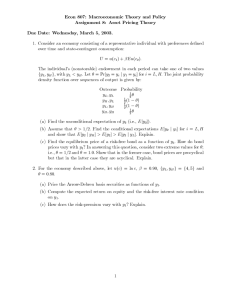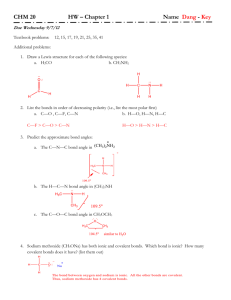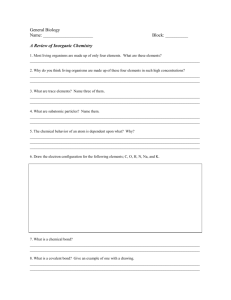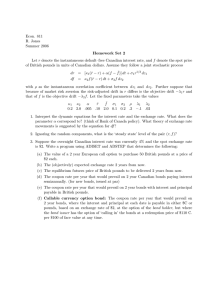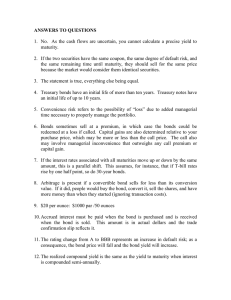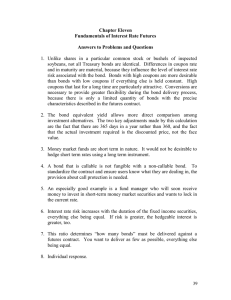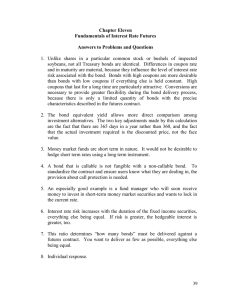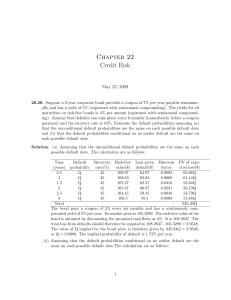Econ. 811 Summer 2010 Homework Set 2
advertisement
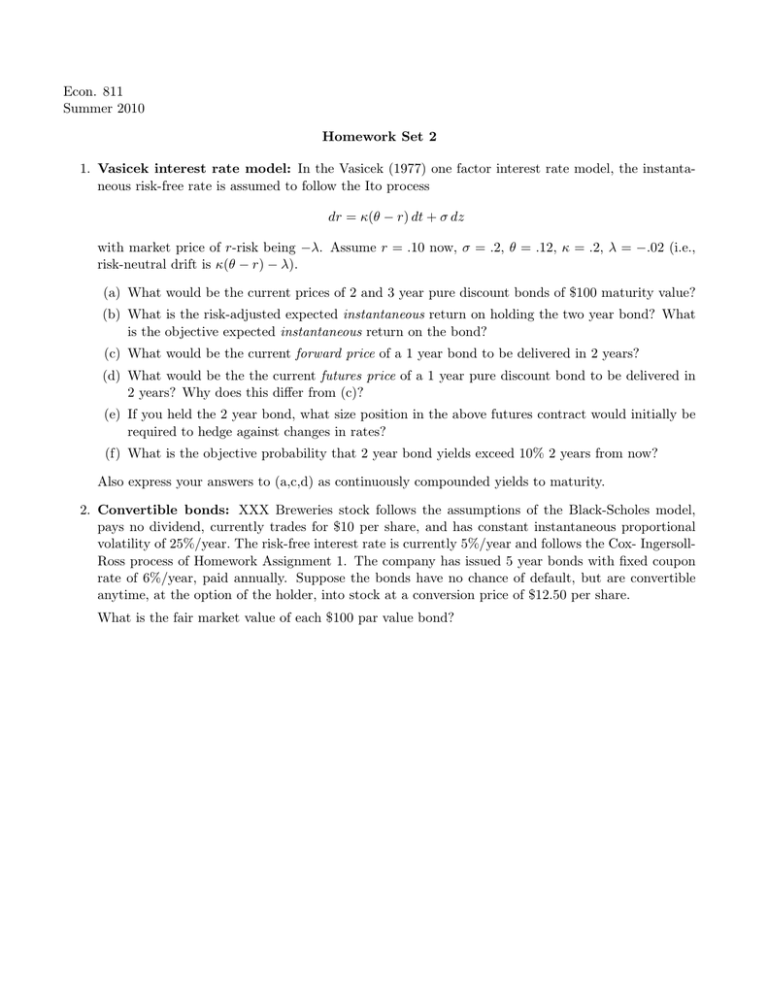
Econ. 811 Summer 2010 Homework Set 2 1. Vasicek interest rate model: In the Vasicek (1977) one factor interest rate model, the instantaneous risk-free rate is assumed to follow the Ito process dr = κ(θ − r) dt + σ dz with market price of r-risk being −λ. Assume r = .10 now, σ = .2, θ = .12, κ = .2, λ = −.02 (i.e., risk-neutral drift is κ(θ − r) − λ). (a) What would be the current prices of 2 and 3 year pure discount bonds of $100 maturity value? (b) What is the risk-adjusted expected instantaneous return on holding the two year bond? What is the objective expected instantaneous return on the bond? (c) What would be the current forward price of a 1 year bond to be delivered in 2 years? (d) What would be the the current futures price of a 1 year pure discount bond to be delivered in 2 years? Why does this differ from (c)? (e) If you held the 2 year bond, what size position in the above futures contract would initially be required to hedge against changes in rates? (f) What is the objective probability that 2 year bond yields exceed 10% 2 years from now? Also express your answers to (a,c,d) as continuously compounded yields to maturity. 2. Convertible bonds: XXX Breweries stock follows the assumptions of the Black-Scholes model, pays no dividend, currently trades for $10 per share, and has constant instantaneous proportional volatility of 25%/year. The risk-free interest rate is currently 5%/year and follows the Cox- IngersollRoss process of Homework Assignment 1. The company has issued 5 year bonds with fixed coupon rate of 6%/year, paid annually. Suppose the bonds have no chance of default, but are convertible anytime, at the option of the holder, into stock at a conversion price of $12.50 per share. What is the fair market value of each $100 par value bond?
